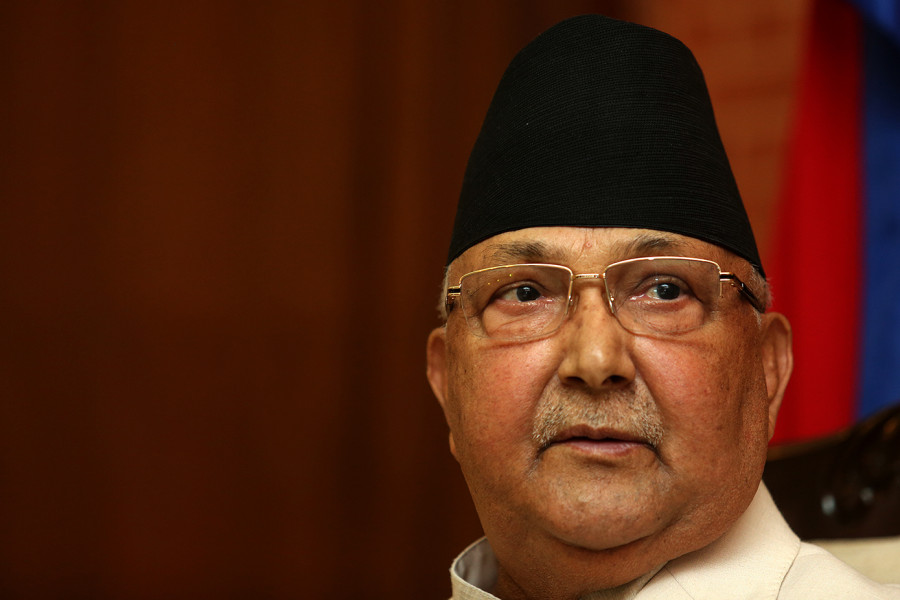National
PM Oli to be discharged only after doctors become confident and comfortable
Visits to the prime minister will be restricted for a month to minimise infection risk, physician says.
Arjun Poudel
Doctors on Monday said that Prime Minister KP Sharma Oli was recuperating well after his second kidney transplant.
“The prime minister’s health is improving. He will be discharged after we are confident and comfortable,” Dr Dibya Singh Shah, the prime minister's personal physician and a member of the team that performed transplant surgery on Oli, said at a press meet on Tuesday.
Shah added that before discharging Oli from the hospital, it was imperative that all the required medical arrangements were made at the prime minster’s residence.
Oli, who had undergone his first kidney transplant in New Delhi in 2007, underwent a second renal transplant at the Tribhuvan University Teaching Hospital on Wednesday.
Shah said that Oli’s family members and the Prime Minister’s Secretariat had also requested the hospital to keep him under observation for a few more days so that they could make necessary arrangements for his postoperative care at the prime minister’s residence in Baluwatar.
Shah said all visits to the convalescing prime minister would be restricted for at least one month, as a patient who had undergone kidney transplant surgery are highly susceptible to infection due to high doses of immunosuppressants administered to prevent organ rejection.
“It could take six months to one year for the prime minister to return to normal lifestyle,” Shah said.
As Oli recovers in the hospital, doctors are regularly monitoring his vitals and functions of the new kidney, heart, liver and other organs.
Dr Uttam Sharma, head of urology and kidney transplant department at the hospital, said Oli’s surgery was a success, and it was all due to the result of teamwork.
“The result of teamwork is before us," Sharma said.
However, a nephrologist, who did not want to be identified, told the Post that a kidney transplant patient must be observed for least three months before his or her surgery can be concluded a success.
After a renal transplant, the patient needs to be administered high doses of immunosuppressants to prevent rejection, which always raises the risk of infection, he added.
Twelve years after Oli’s first kidney transplant, symptoms of dysfunction had started to show in September last year. Oli had then travelled to Singapore for treatment where he underwent plasmapheresis and dialysis.
Oli had been regularly undergoing dialysis—twice a week—in Kathmandu, since the end of October.
But in November, Oli had another health complication when he was admitted to the Manmohan Cardiothoracic Vascular and Transplant Center for severe stomach ache. He was diagnosed with appendicitis and had to undergo an appendectomy. But since he had developed peritonitis, an inflammation of the peritoneum, a silk-like membrane on the inner abdominal wall, the kidney transplant plan was delayed by a few months.




 13.12°C Kathmandu
13.12°C Kathmandu














